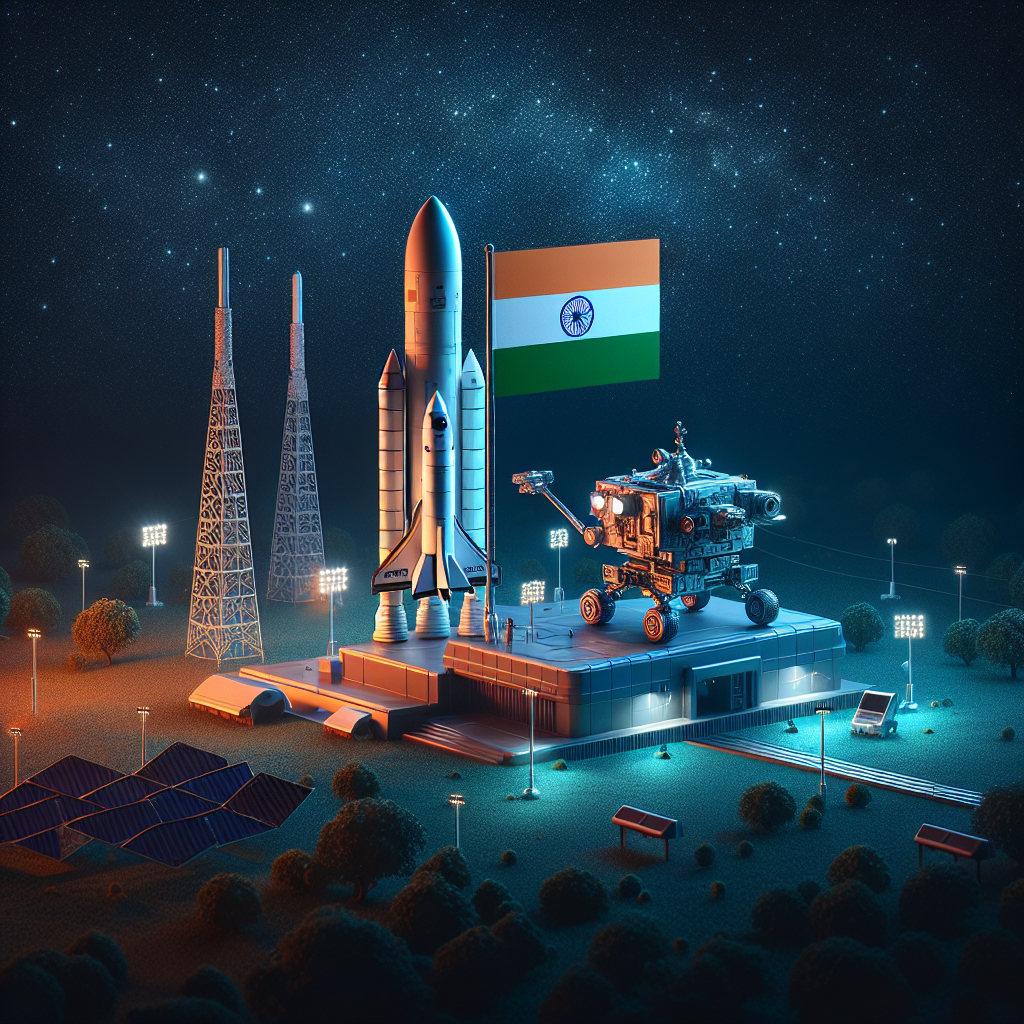ISRO Hosts National Space Meet 2.0, Charts Roadmap for Viksit Bharat 2047
The meet featured 10 breakout sessions, chaired by Secretaries of Union Ministries, with participation from domain experts, industry leaders, and state representatives.

- Country:
- India
As part of the 2nd National Space Day celebrations, marking the historic soft landing of the Vikram rover on the Moon, the Indian Space Research Organisation (ISRO) convened the National Space Meet 2.0 at Bharat Mandapam, New Delhi, on the theme “Leveraging Space Technology and Applications for Viksit Bharat 2047.”
The high-level conclave brought together Union Ministries, State Governments, private sector leaders, academia, startups, and international experts, making it one of the most comprehensive consultations on India’s space roadmap since 2015. The meet aims to drive space-based governance reforms, citizen-centric applications, and socio-economic transformation, in line with the vision of Viksit Bharat@2047.
Whole-of-Government Approach
Shri P.K. Mishra, Principal Secretary to the Prime Minister, who presided over the concluding ceremony, called India’s space journey “a shining example of collective resolve,” citing contributions from ministries, industries, scientists, and startups.
He praised the “whole-of-government” adoption of space solutions, noting that over 60 departments now use satellites, navigation, and geospatial tools for governance—ranging from agriculture, water, and health to disaster management and climate resilience.
Reflecting on reforms initiated under Prime Minister Narendra Modi, Shri Mishra highlighted the explosive growth of the private space sector—from just two startups in 2014 to over 350 today, with several already building satellites and rockets. He emphasized the need to:
-
Institutionalize the National Space Meet as a regular consultative platform.
-
Expand private sector participation and PPP models.
-
Integrate AI, quantum computing, and big data with satellite and ground systems.
-
Strengthen global collaborations, citing NASA-ISRO SAR and the upcoming G20 Satellites for Climate Initiative.
“India’s space journey is about empowering citizens, bridging divides, and building a self-reliant nation. As we march towards Viksit Bharat 2047, space will be one of the strongest enablers of growth and transformation,” Shri Mishra said.
10 Thematic Breakout Sessions
The meet featured 10 breakout sessions, chaired by Secretaries of Union Ministries, with participation from domain experts, industry leaders, and state representatives. The themes included:
-
Agriculture & Water
-
Forests, Environment & Energy Policy
-
Infrastructure Development & Geo-Governance
-
Health, Education & Social Welfare
-
Communication, Navigation & Technology Diffusion
-
Disaster Risk Reduction
-
Ocean, Weather & Earth Resources
-
North-Eastern Region and Hilly States/UTs
-
Coastal States/UTs
-
Inland States/UTs
Over four months of pre-consultations, hundreds of space applications and use cases were identified for immediate deployment and long-term planning.
Industry, Private Sector, and Startups
Shri Pawan Goenka, Chairman, IN-SPACe, emphasized that the meet was a problem-solving exercise, not just a conference. He urged ministries to trust private players and startups to deliver scalable solutions, while advising industry leaders to treat space not only as a business but also as a national mission.
He underlined that space reforms have created a virtuous cycle of innovation:
-
Knowledge of space applications is now widespread.
-
Demand for space-based services is rapidly rising.
-
Private players are building indigenous satellites, launch vehicles, and data platforms.
He envisioned space technology reaching every farmer, every student, and every community, forming the backbone of a resilient and prosperous Bharat.
ISRO Chairman’s Roadmap
Shri V. Narayanan, ISRO Chairman, traced India’s journey from the Thumba rocket launches of 1963 to today’s 55 operational satellites, which power broadcasting, telecom, telemedicine, disaster warnings, and fisheries monitoring.
He outlined ISRO’s next-decade vision:
-
Augment capability with new instruments, autonomous constellations, and integrated systems.
-
Institutionalize space applications for food, water, energy, climate resilience, and smart governance.
-
Deepen private sector participation in satellite constellations, communication systems, and application services.
Setting a bold vision, he declared:
“By 2040, India will stand at par with global leaders in rockets, satellites, and applications—making a decisive contribution to Viksit Bharat 2047.”
NITI Aayog on Space Governance
Dr. V.K. Saraswat, NITI Aayog Member and former DRDO Chief, highlighted how since 2015, ministries have mainstreamed space technology into their work—across agriculture, biodiversity, roads, health, and disaster management. He credited policies such as the Geospatial Policy 2022, Indian Space Policy 2023, and creation of IN-SPACe for shifting India to a demand-driven, partnership-based Space 4.0 model.
Dr. Saraswat praised private startups like Skyroot, Agnikul, Pixxel, Dhruva, and Digantara, which are driving innovation in launch systems, satellites, and data services. He also called for:
-
Building resilient indigenous space technologies for defense and security.
-
Creating an International Alliance on Space for global cooperation on debris mitigation, space-based energy, mining, and legal frameworks.
Ambitious Targets
The meet set clear strategies for the coming decades:
-
Triple India’s operational satellites within 3 years.
-
Deploy 119 Earth Observation, SATNAV, and SATCOM satellites by 2040.
-
Use moderate-resolution satellites and NAVIC for governance and citizen services.
-
Promote PPP models for high-resolution satellites and commercial SATCOM.
-
Establish national infrastructure for technology demonstrations, led by ISRO.
The roadmap envisions India as a top global space power by 2040, with space as a central enabler of governance, sustainability, and economic prosperity.
Towards Reimagining Governance
National Space Meet 2.0 reflected ISRO’s commitment to “reimagining governance for the 21st century”, using space technology not only for scientific prestige but also for daily service delivery to citizens. With strong government backing, thriving private participation, and global collaborations, India is positioning itself as a leader in the democratization of space for development and resilience.










